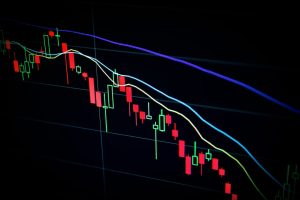Forex trading is an exciting and potentially profitable venture, but it can be intimidating for beginners. The forex market operates 24 hours a day, five days a week, and it’s the largest and most liquid financial market in the world. Banks are among the biggest players in the forex market, and they have a significant advantage over retail traders. However, with the right strategies and mindset, retail traders can also trade forex like a bank.
Here are some tips on how to trade forex like a bank:
1. Have a trading plan
Banks don’t trade forex randomly; they have a well-thought-out trading plan. A trading plan is a set of rules that guides your trading decisions. It should include your trading goals, risk management strategies, and trading strategies. Your trading plan should be flexible enough to accommodate changes in the market but strict enough to prevent emotional trading decisions.
2. Trade with a long-term view
Banks don’t trade forex for short-term gains; they have a long-term view of the market. They analyze the fundamental factors that affect the currency pairs and make their trading decisions based on the long-term outlook. Retail traders should also adopt a long-term view of the market and avoid trading based on short-term fluctuations.
3. Focus on risk management
Banks are known for their strict risk management policies, and retail traders should also prioritize risk management. Risk management involves setting stop-loss orders, limiting your leverage, and diversifying your portfolio. It’s important to manage your risk to avoid losing your entire trading account.
4. Use fundamental analysis
Banks rely heavily on fundamental analysis to make their trading decisions. Fundamental analysis involves analyzing economic data, monetary policy, and geopolitical events that affect the currency market. Retail traders should also incorporate fundamental analysis into their trading strategies to make informed trading decisions.
5. Use technical analysis
Banks also use technical analysis to identify trends and trading opportunities. Technical analysis involves using charts and indicators to analyze price movements and identify patterns. Retail traders should also learn how to use technical analysis to complement their fundamental analysis.
6. Trade with discipline
Banks trade forex with discipline and a clear mind. They don’t let emotions cloud their judgment or deviate from their trading plan. Retail traders should also trade with discipline and avoid making impulsive trading decisions based on emotions.
7. Keep a trading journal
Banks keep detailed records of their trading activities, and retail traders should also keep a trading journal. A trading journal helps you track your trading performance, identify your strengths and weaknesses, and improve your trading strategies.
In conclusion, trading forex like a bank requires discipline, a long-term view, risk management, and a solid trading plan. Retail traders should incorporate fundamental and technical analysis into their trading strategies and trade with discipline. Keeping a trading journal can also help improve your trading performance. With the right mindset and strategies, retail traders can also trade forex like a bank.





